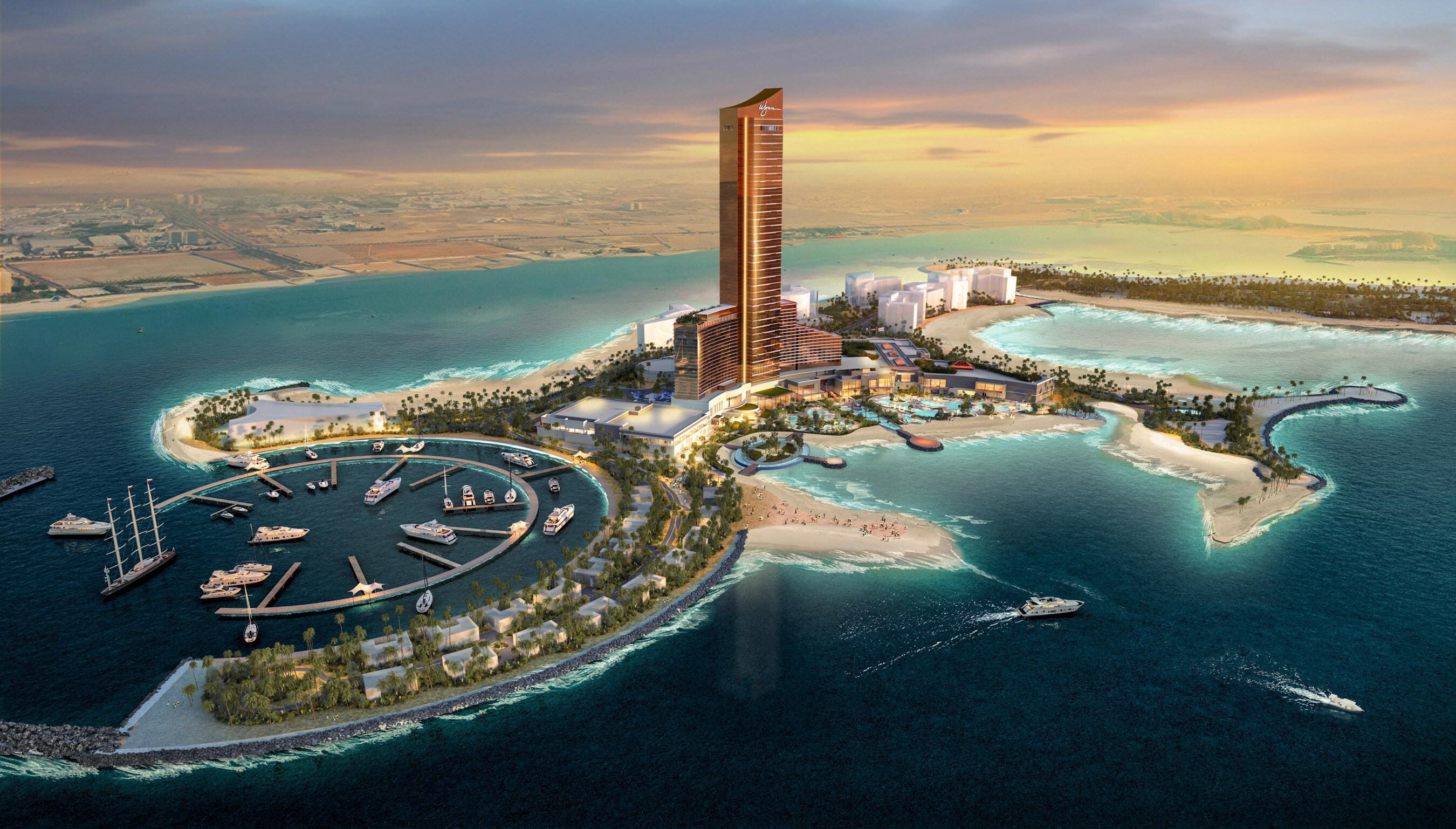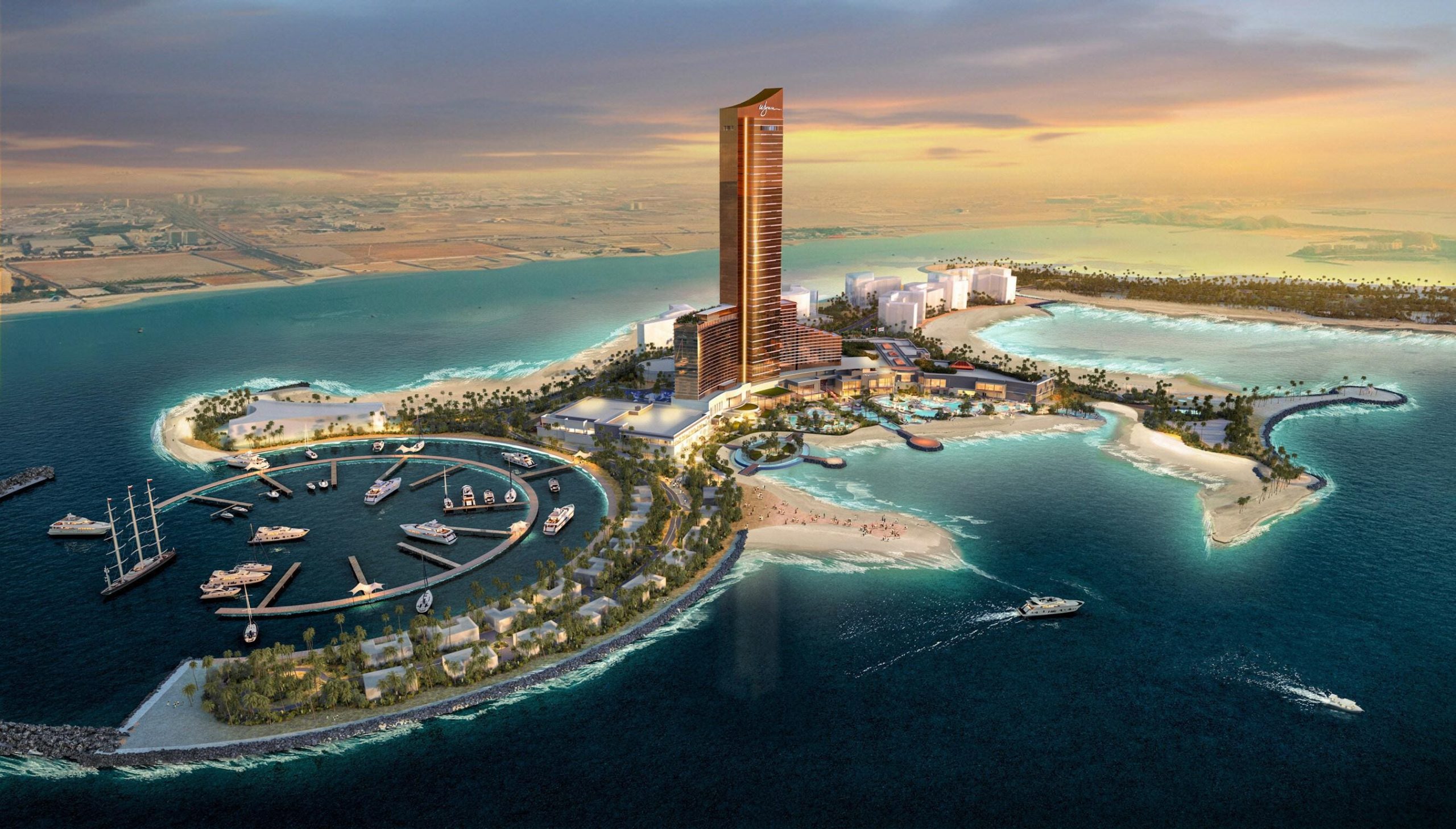
When it comes to casinos, the house is always meant to win. But the cost of developing the first gambling resort in the United Arab Emirates is likely to push the local host government in Ras Al-Khaimah – one of the seven emirates that make up the country – into a fiscal deficit, according to Fitch Ratings.
Construction work began at the site earlier this year and the resort is due to open its doors to customers in early 2027. For a small economy like Ras Al-Khaimah, the project represents a giant gamble. The development is expected to cost a total of $3.9 billion, which is equivalent to almost a third (32%) of the emirate’s total gross domestic product (GDP) last year.
Two state-owned companies, RAK Hospitality and Al-Majran Island, are developing the project and Fitch said it assumes that together they will hold a majority stake in the venture, alongside U.S.-listed Wynn Resorts
In its latest report on the emirate’s credit rating, which has been affirmed at A with a positive outlook, Fitch said the resort will “weigh on public finances initially” but over the longer term should boost growth prospects and fiscal revenues.
The emirate booked a 4.8% budget surplus last year, but Fitch said the cost of developing the resort is expected to push the government’s budget into a deficit of 0.1% of GDP this year and 0.2% in 2024. “The deficits will stem from the expected cash equity injections for the integrated resort,” the credit ratings agency said.
The impact of the resort’s development costs would have been even greater on public finances, were it not for the introduction of a corporate income tax across the UAE
Rendering of the planned interior of the Wynn Al Marjan Island resort
Fitch also said that, over the medium-term, “the public-sector balance sheet may be weakened by debt drawdowns to finance the construction of the integrated resort”. In the shorter term the agency said it expects public-sector debt to fall from 10.4% of GDP in 2022 to 9.9% in 2023 and 9.1% in 2024.
Fitch also expects Ras Al-Khaimah’s budget deficits, combined with some debt repayments by state-owned enterprises, to reduce public-sector deposits from 12.9% of GDP in December 2022 to 11% by the end of 2024.
On the positive side, the ongoing construction work on the resort should boost the emirate’s GDP by one percentage point in 2023 and three percentage points in 2024, with real GDP in those years showing growth of 4.4% and 5.1% respectively.
Wynn Resorts unveiled further details of its plans for the resort in late April, including images of what is the company’s first project in the Middle East.
The company said the resort would have 1,500 rooms, suites and villas, as well as retail and events facilities. It said the resort would “transform and accelerate” Ras Al-Khaimah’s development and create “substantial value to its economy through tourism and job creation”.
Some elements of the project remain more opaque, however, including what sort of gaming will be allowed in what is a conservative country where gambling has been prohibited. Ras Al-Khaimah Tourism Development Authority chief executive Raki Phillips told Reuters in early May that 4% of the resort would be given over to gaming.
Rendering of Wynn Al Marjan Island – Exterior view from beach
